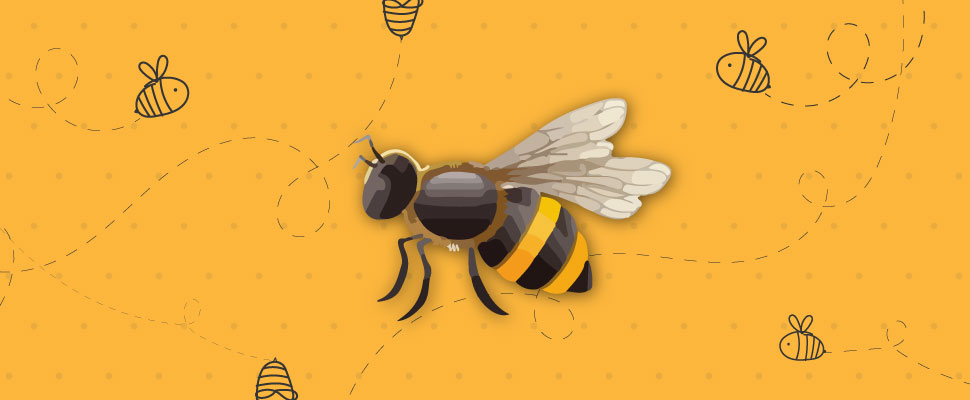Saving bees: 3 ways to protect them
These insects are fundamental for pollination and if they disappear, the food crisis would be unimaginable. We tell you 3 ways to protect them

Escucha este artículo
Leer en español: Salvando las abejas: 3 formas para protegerlas
The use of pesticides, toxic chemicals, monocultures and industrialization have put the bees in danger. The importance of bees is invaluable because thanks to pollination is that flowers, fruits, and seeds are generated.
Bees are responsible for 75% of the food we consume and their work as pollinators has a value of 265,000 million euros, according to Greenpeace. Despite their importance, 37% of bees in Europe are at risk and according to the UN, 40% of invertebrate pollinators, including butterflies and bees, are threatened with extinction.
That is why different initiatives have been launched worldwide to protect them. Here we tell you 3:
1. Vaccine for bees
A group of scientists from the University of Helsinki developed a vaccine that gives resistance to bees to combat various diseases such as microbes. According to Semana, until now it was not possible to vaccinate insects because they do not have antibodies. However, in 2014, it was discovered that certain butterflies fed with bacteria transmitted the 'vaccine' to their offspring thanks to the protection that the bacteria transferred to them.
Dalial Freitak and Heli Salmela developed the vaccine based on that discovery. It mainly protects bees from American foulbrood, one of the most dangerous bacterial diseases for bees.
The vaccine is received by the queen of the hive, which will transmit protection to its offspring. Like polio, it is administered by means of a sugar. This vaccine would be able to make this insect stronger and resistant.
2. Historical decision
In Cartagena, Colombia, Judge Freddy Machado accepted an action of protection to safeguard the bees. This appeal for protection requires the ministries of Environment and Agriculture to create an organization that regulates the protection of bees.
Read also: These are the obstacles to clean the great Pacific garbage patch
Additionally, Machado also ordered the promotion of policies to find the causes that put these pollinators at risk and promote and reward research on these insects.
This ruling came after Joaquín Torres presented the action of protection. Torres is a Colombian lawyer concerned about the "silent extinction" of bees and life itself.
To ensure that in effect government institutions comply with what was ordered by the First Criminal Court of the Circuit with Knowledge Functions of Cartagena, they must submit a bi-monthly report to this institution.
3. We can all take care of them
The most important thing to be aware of the danger that this species runs is that we can all do something to protect them. Greenpeace says that thanks to the thousands of signatures collected in 2017, it was possible to stop selling fipronil in the European Union, an insecticide that blocks the nervous system of insects.
The support to governmental and private causes to protect the flora and fauna is fundamental. Social pressure can lead to legislate the use of harmful elements.
Another example to protect bees is what you can do from home and every day. You can purchase and consume organic and ecological products that have been grown without pesticides, which are so lethal for bees. Regarding honey, Greenpeace recommends consuming honey products, since beekeeping is one of the most sustainable activities.
LatinAmerican Post | Marcela Peñaloza
Translated from “Salvando las abejas: 3 formas para protegerlas“





